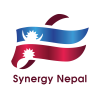🤝 Synergy Nepal (Samanwaya Nepal): Knowledge, Empowerment, and Sustainable Development
Synergy Nepal (Samanwaya Nepal) was established in 2006 with a core objective: to drive social, economic, and intellectual development among Nepal’s backward and marginalized poor classes.
Since our inception, we have gained extensive experience across 13 districts of Nepal, focusing on:
- Empowerment of disadvantaged sections.
- Adult and financial literacy.
- Group mobilization and cooperative promotion (notably in remote districts like Achham and Mugu).
- Human rights protection and awareness.
In response to current social and educational challenges, we established a Parenting School to directly address the quality of education through parental training, child learning activities, and holistic family management programs.

Our Mission and Objectives
Synergy Nepal is committed to promoting sustainable development through focused interventions and strategic partnerships.
We strive for sustainable development by:
- Making formal and non-formal education life-affirming.
- Promoting child learning and reducing social distortions and frustration.
- Fostering entrepreneurship through parental education and gender equity programs.
- Acting as a mediating agency for capacity building of social organizations working at the local level.
- Quality Education: Conduct programs for teachers, students, and parents to improve educational quality, collaborating with local/federal governments and international NGOs.
- Character Development: Promote children's learning, good character, culture, altruistic spirit, and family sense of duty in collaboration with schools.
- Moral Enhancement: Utilize the intellectual potential of retired and senior citizens to enhance moral education in society.
- Self-Service: Conduct programs to promote and scale up the spirit of self-service as a national campaign.
Focused Action for a Knowledge Society
Synergy Nepal’s current focus is driven by the country's needs and the challenges of the Digital Age. Our work centers on creating a knowledge-based society.
- Educational Quality: Improving the educational system, prioritizing child learning activities, and enhancing the capacity of schools, students, and parents.
- Digital Literacy: Providing education and training to meet new challenges, focusing on Information and Communication Technologies (ICT) to increase knowledge, employment, and management skills.
- Poverty Reduction: Promoting the use of rural workplace appropriate technology to reduce poverty and increase productivity in semi-urban communities.
- Integrated Development: Addressing common issues such as environmental conservation, entrepreneurship development, women’s care, and financial literacy.
- Research: Conducting or encouraging research to find ways to reduce poverty and bring about socio-economic change.
Our specialized expertise ensures impactful, demand-driven programs:
- Improving Educational Quality (for students, teachers, and parents).
- Family and Financial Education.
- Community awareness in promoting good governance.
- Women’s Empowerment for gender equality.
- Digital literacy and multimodal communication.
- Financial literacy and family/personal financial management.
All programs are demand-driven, determined by situational analysis and comprehensive needs assessment in potential program areas.

The success of Synergy Nepal is built upon the vast, multidisciplinary experience of its management team in education, banking, human rights, and entrepreneurship.
Proven Track Record
Our founder and current director, Shri Bhakta Raj Ranjith, brings a globally recognized track record:
- He served as the Project Manager for the Women’s Empowerment Program (WEP), sponsored by Pact, Washington DC.
- This innovative program integrated literacy, micro-finance, micro-enterprise training, and legal advocacy.
- Impact: Within three years, WEP helped 123,000 poor women in Nepal raise their literacy rate from 39% to 90%.
- Economic Contribution: Beneficiary women, using their savings, established over 65,000 new micro-enterprises, contributing more than $410 million in revenue annually.
- Recognition: The program won five international awards.
Our working committee members are highly experienced contributors in the fields of education, banking, finance, cooperatives, community mobilization, and leadership capacity development.
We are striving to build a knowledge society by intensively encouraging people to acquire education, age-appropriate knowledge, skills, and competencies, especially through the effective use of Information and Communication Technologies (ICT), ensuring continuous learning and knowledge sharing.
Partner With Us
We believe women are the essential assets of the country who can bring prosperity to their families, communities, and the nation. In this crucial age of conflict and digital transformation, they need innovative pathways to enrich their intellectual and critical abilities. Synergy Nepal is the experienced organization equipped to lead this transformation.
We are seeking collaborative planning, ideas, and technical assistance to meet the sustainable development needs of the nation.
Contact us to collaborate on knowledge management, technical assistance, and capacity building.
